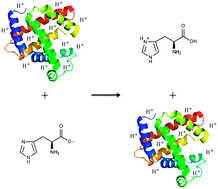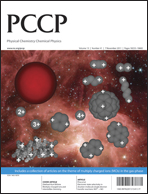The effect of reagent charge state on the charge inversion efficiency of singly charged polyatomic ions in the gas phase
Abstract
A variety of combinations of oppositely charged ions have been reacted to examine the role of the charge state from a multiply protonated or multiply deprotonated reagent ion on the efficiency of conversion of a singly charged ion of opposite polarity to a singly charged ion of the same polarity as the reagent. Maximum efficiencies on the order of tens of percent were observed. A threshold for charge inversion was noted in all cases and, with one exception, a clear decrease in efficiency was also noted at high charge states. A model was developed to predict charge inversion efficiency based on charge states, cross-sections of the reactants, and relevant thermodynamic ion affinity values for the reactants and products. The model predicts a threshold for charge inversion, although the prediction does not match the observed threshold quantitatively. This discrepancy is likely due to a simplifying assumption that is not justified on a quantitative basis but which does reproduce the qualitative trend. The model does not predict the major decrease in efficiency at high charge states. However, calculations show that the kinetic energies of the charge inversion products can lead to significant scattering losses at high charge states of the ion-ion collision complex.

- This article is part of the themed collection: Multiply charged ions (MCIs) in the gas-phase

 Please wait while we load your content...
Please wait while we load your content...